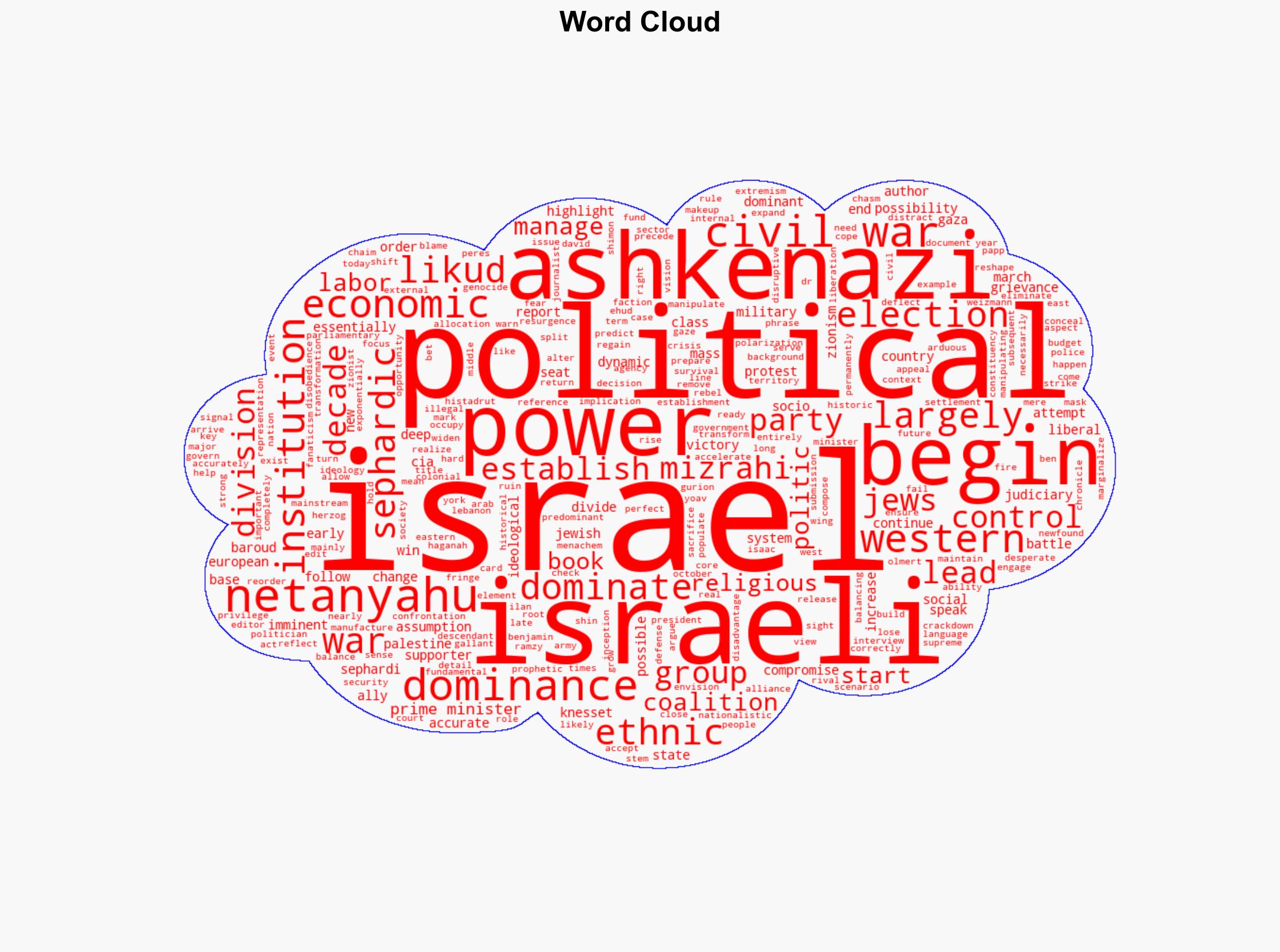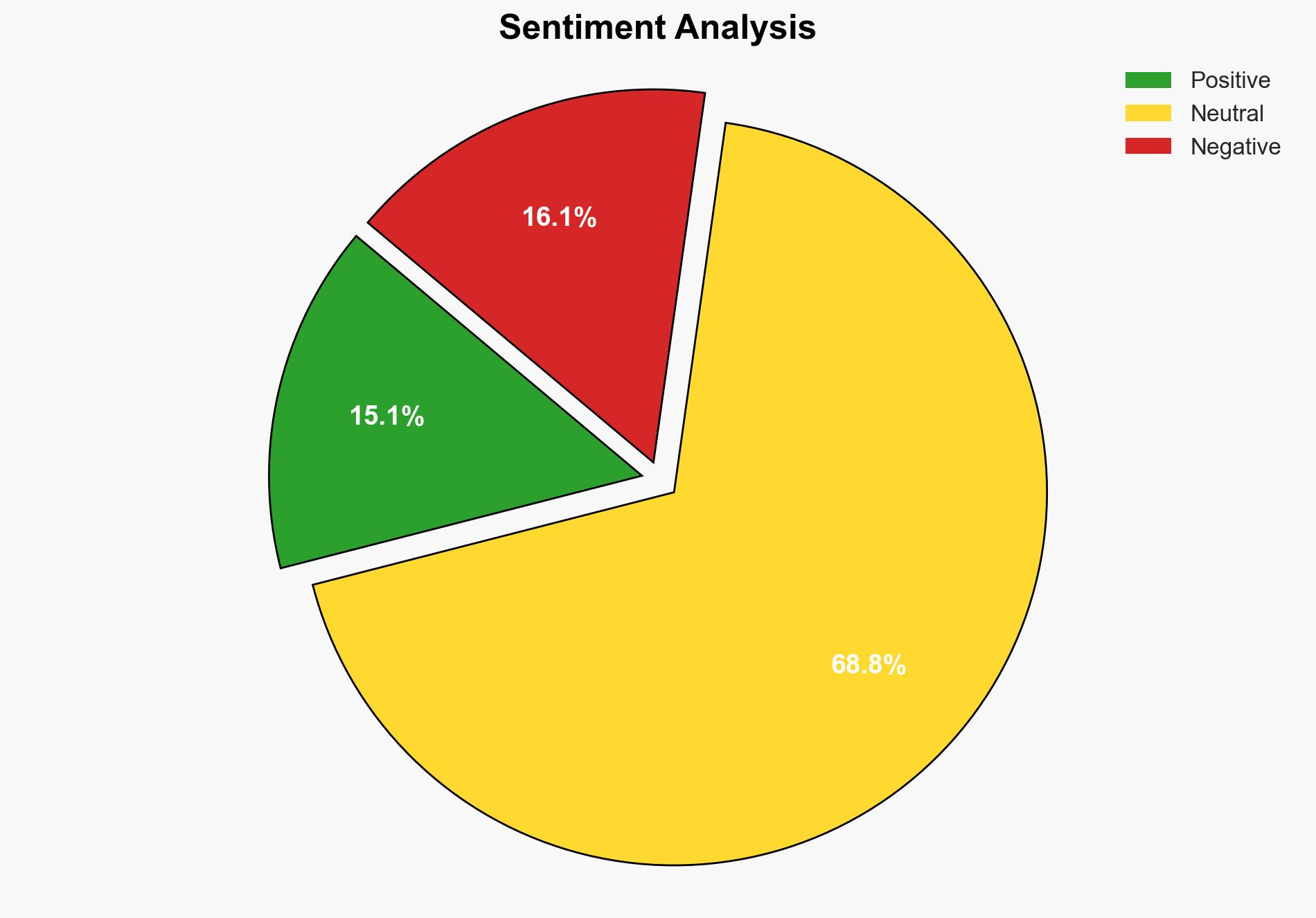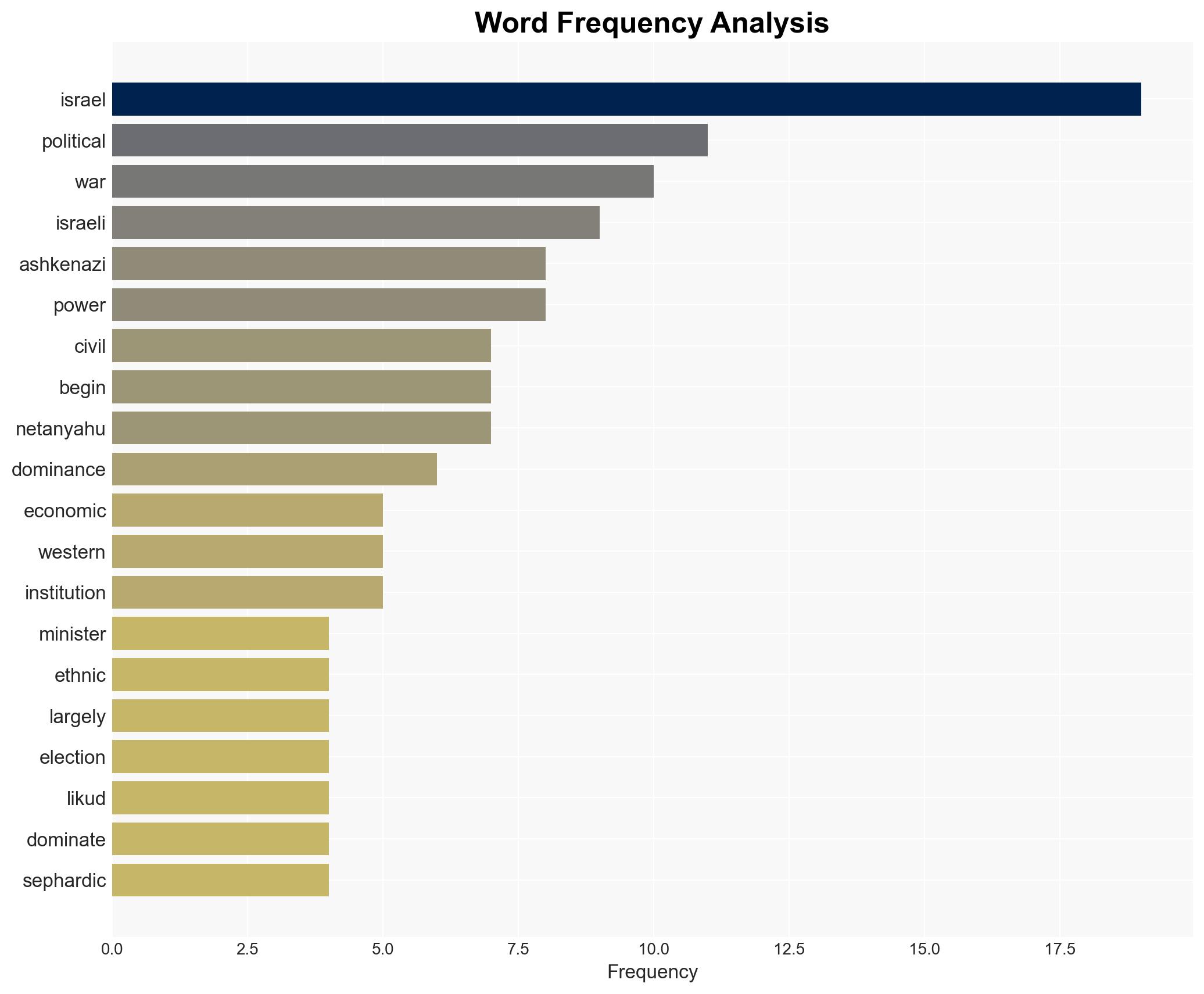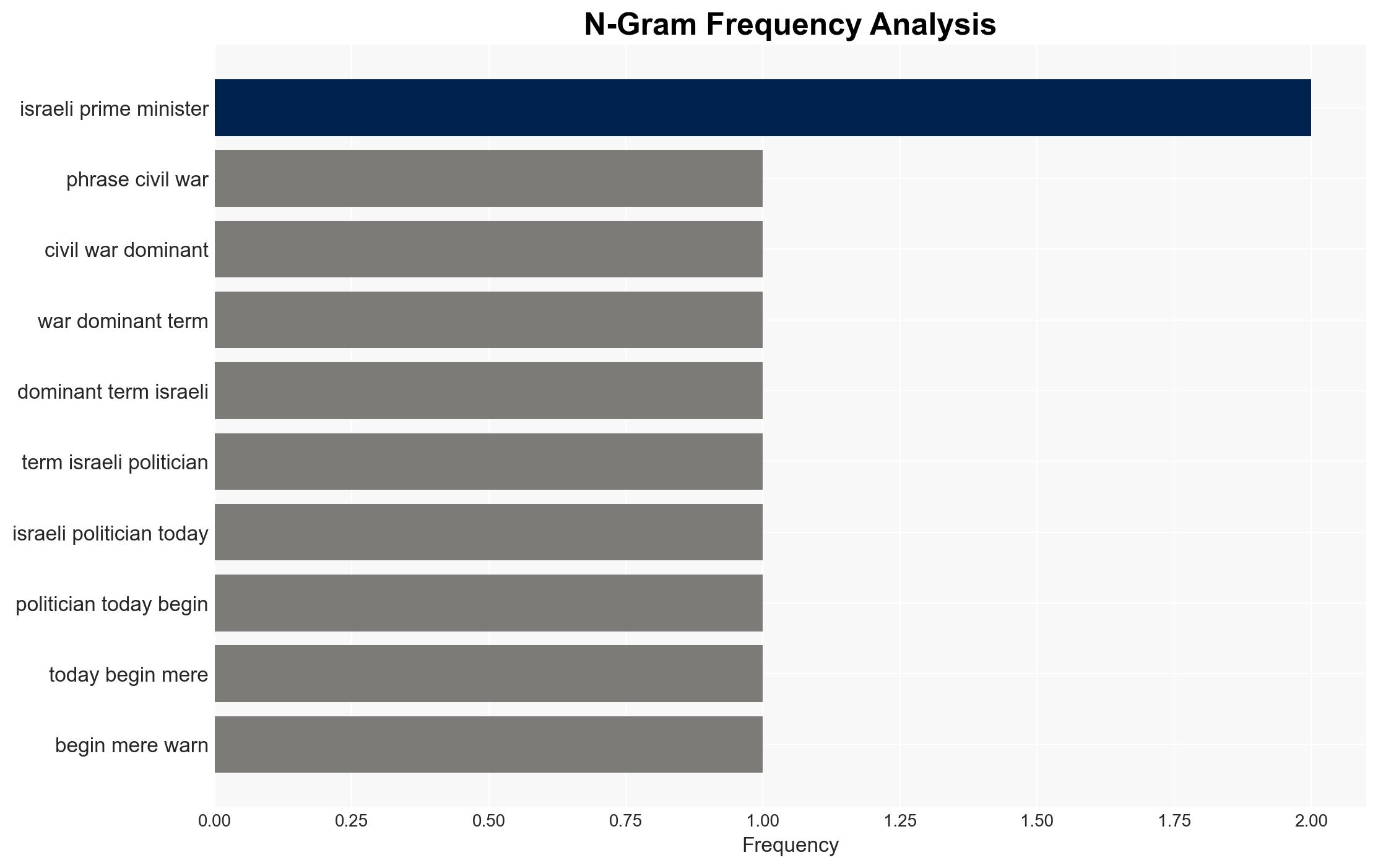Civil War on the Horizon The Ashkenazi-Sephardic Conflict and Israels Future – Antiwar.com
Published on: 2025-04-09
Intelligence Report: Civil War on the Horizon The Ashkenazi-Sephardic Conflict and Israel’s Future – Antiwar.com
1. BLUF (Bottom Line Up Front)
The potential for civil unrest in Israel is increasing due to deep-rooted ethnic and political divisions between Ashkenazi and Sephardic communities. Historical dominance by Ashkenazi groups has led to socio-economic disparities, fueling tensions. Recent political shifts, including the rise of a coalition led by Benjamin Netanyahu, highlight the growing influence of Sephardic and Mizrahi groups. Strategic recommendations include fostering inclusive governance and addressing socio-economic inequalities to prevent escalation into civil conflict.
2. Detailed Analysis
The following structured analytic techniques have been applied for this analysis:
General Analysis
The term “civil war” has become prevalent in Israeli political discourse, reflecting heightened polarization. Historical context reveals a longstanding divide between Ashkenazi Jews, who have traditionally held power, and Sephardic/Mizrahi Jews, who have been marginalized. The Likud party’s rise, particularly under the leadership of Menachem Begin and later Benjamin Netanyahu, marks a shift towards greater representation for Sephardic interests. This shift has been characterized by strategic alliances and leveraging grievances of socio-economically disadvantaged groups.
3. Implications and Strategic Risks
The primary risk is the potential for civil unrest, which could destabilize national security and impact regional stability. Economic interests may be threatened by disruptions in governance and potential international repercussions. The internal ethnic and political divisions could also weaken Israel’s ability to respond to external threats, thereby affecting regional alliances and security dynamics.
4. Recommendations and Outlook
Recommendations:
- Promote policies that ensure equitable socio-economic opportunities across all ethnic groups.
- Encourage dialogue and reconciliation initiatives to bridge ethnic and political divides.
- Implement regulatory reforms to enhance political representation and inclusivity.
Outlook:
Best-case scenario: Successful implementation of inclusive policies leads to reduced tensions and enhanced national unity.
Worst-case scenario: Escalation of ethnic tensions results in civil unrest, impacting national and regional stability.
Most likely outcome: Continued political maneuvering with periodic tensions, but no immediate descent into civil war.
5. Key Individuals and Entities
The report mentions significant individuals such as Isaac Herzog, Benjamin Netanyahu, Ehud Olmert, Menachem Begin, and Shimon Peres. These individuals have played pivotal roles in shaping the current political landscape and ethnic dynamics in Israel.





